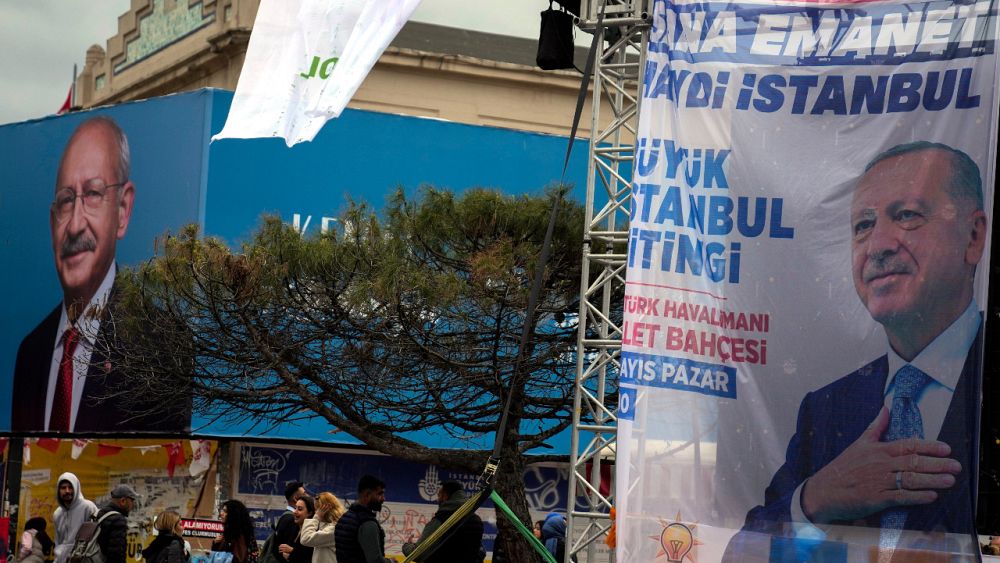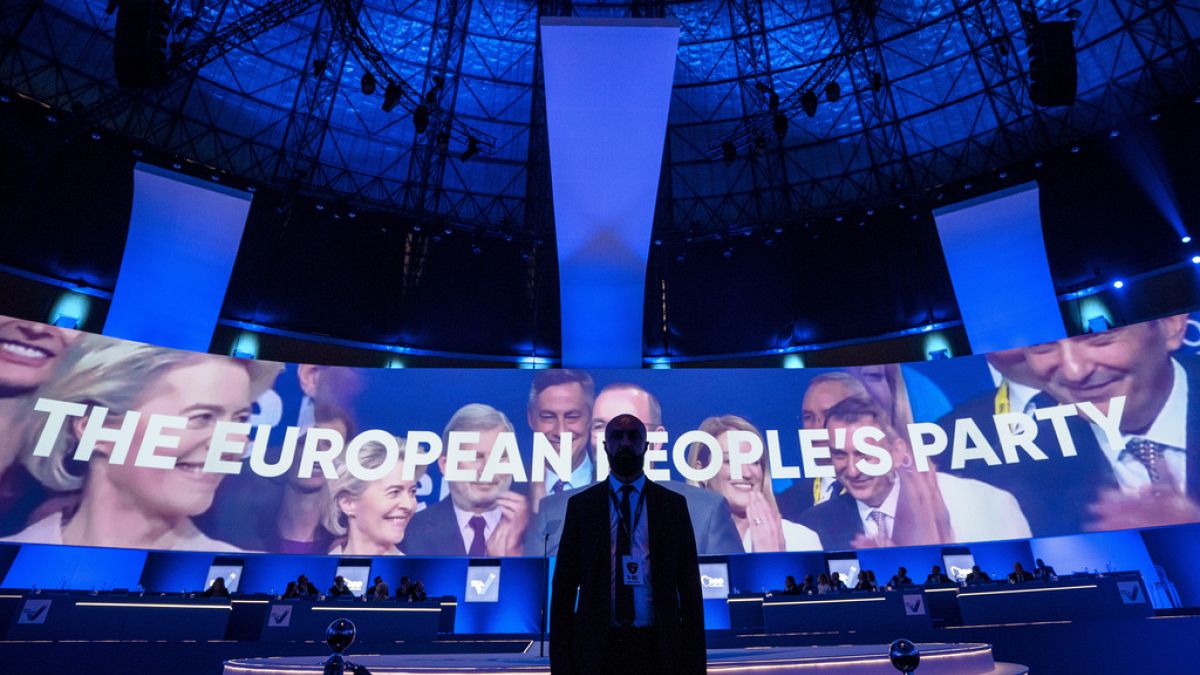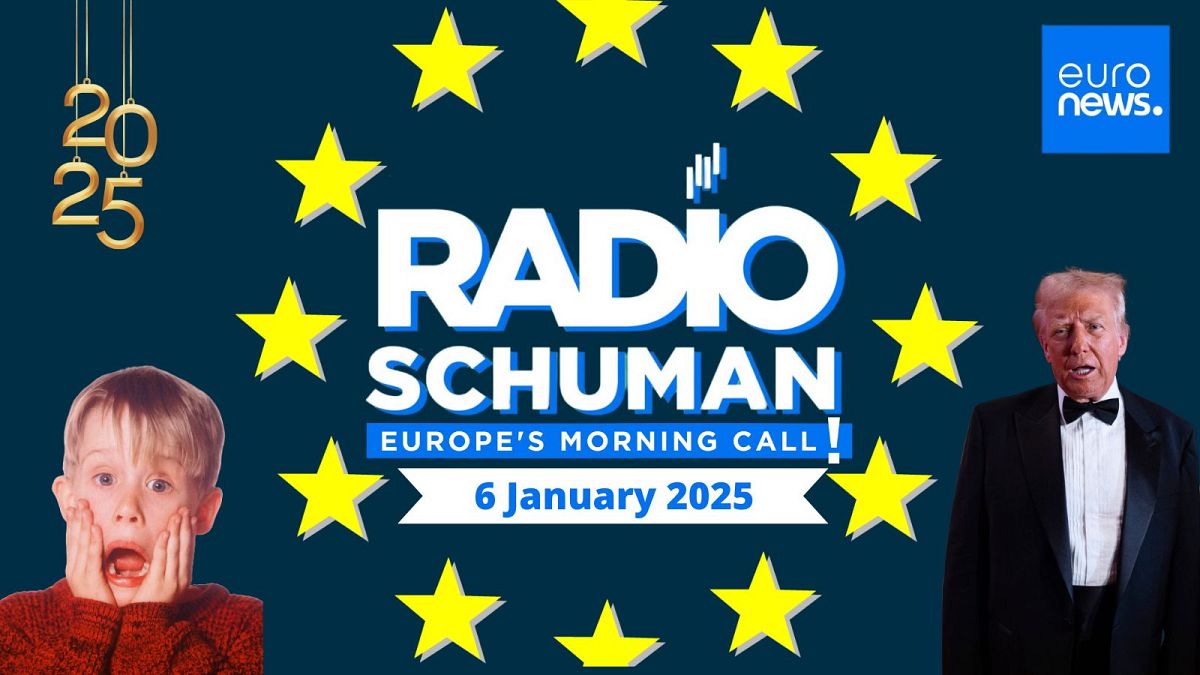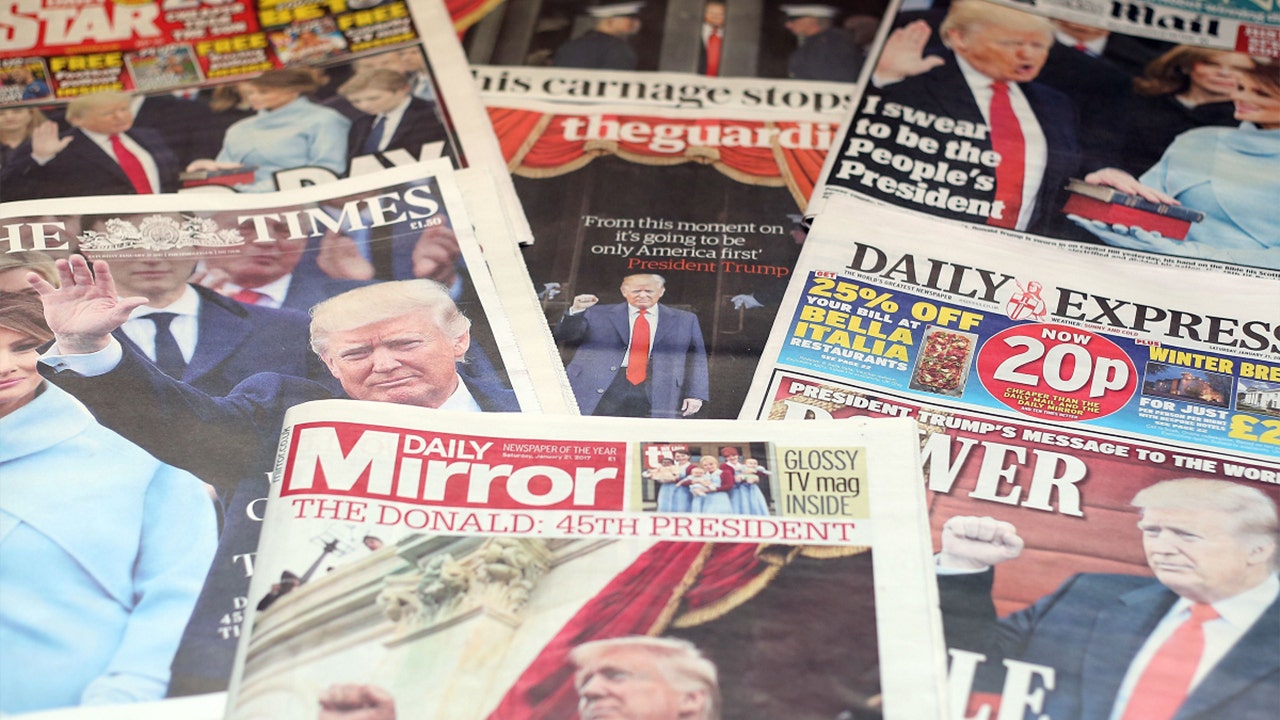World
Turkish election: Here’s how an opposition win could impact EU ties

Turkey is officially a candidate to join the EU but its accession talks have been frozen since 2018 over rule of law and democratic concerns.
Turkish voters will on Sunday go to the polls to vote for their next president in what most see as the most serious challenge to Recep Tayyip Erdoğan’s leadership since he came to power 20 years ago.
Kemal Kılıçdaroğlu, the candidate picked by a united opposition, is currently leading in the polls and said that he will try to restore trust with the EU and the West which is now at a historic low.
The EU froze Turkey’s accession negotiations in 2018 in response to the deterioration of Turkish democracy.
EU leaders stated in their June 2018 summit conclusions that Turkey “has been moving further away from the European Union” and expressed concerns over its “backsliding on the rule of law and on fundamental rights”.
They also stated that Turkey’s accession negotiations “have effectively come to a standstill” and that “no further chapters can be considered for opening or closing”.
Ankara’s naval operations near Greek islands and Cyprus have since also further ratcheted up tensions, and Turkey’s involvement in the Libyan and Syrian conflicts has led many Europeans to see its policies in the Middle East as destabilising.
What happens if the opposition wins …
… with EU talks
But the outcome of the election is unlikely to lead to a resumption of EU talks, according to analysts. Still, progress could be made in some areas should a new government in Turkey change course.
“We are now in a very important juncture and moment, historical moment, where it will be decided if the development will be still problematic for democracy, for rule of law, but also the aggressiveness vis-a-vis EU neighbours like Greece and Cyprus will continue,” Sergey Lagodinsky, the Chair of the European Parliament’s EU-Turkey delegation told Euronews.
“We will be coming in a phase where the division between Turkey and EU will be irreversible. Whatever political decisions will be after the elections, if the decisions would go towards opening the country to democracy and rule of law, if we will see reforms in the justice system, something that we’ve been calling for a long time, then we should start talking, for example, about an update of (the) customs union.”
“We can start talking in case of such reforms. We can start talking about a liberalization of visa regime,” Lagodinsky added.
An opposition victory would mean an opportunity to revamp relations between the EU and Turkey due to campaign promises over the rule of law and individual freedoms, Ilke Toygür, professor of European Geopolitics at the University Carlos III of Madrid told Euronews.
“Secondly, they (the opposition) are claiming that they are going to reclaim Turkey’s Western location. And thirdly, and I think it is also very important for Turkey relations, they will start playing a constructive role in regional affairs, in wider Europe and in a multilateral sense” she added.
… with Russia
It could also have repercussions on the country’s stance toward Russia.
Ankara’s relations with NATO allies have soured over the past few years due, in part, to tensions over Turkey’s growing ties with Russia.
Erdoğan has conducted a diplomatic “balancing act” since Russia invaded Ukraine, opposing Western sanctions on Russia and maintaining close ties with Moscow while at the same time sending drones to Kyiv.
“The Russia policy is going to be a long-term or medium- to long-term issue for Turkey, because there’s a legacy there that the relations between Turkey and Russia are relatively good. And there is also energy dependency, nuclear dependency, and an economic dependency between Turkey and Russia at this moment,” Toygur said.
“Changing these dynamics overnight is not going to be easy for any government, even if this is the opposition government” she added, noting, however, that if it is in power, the opposition “will be more sensitive to Western worries about Russia, for example, when it comes to Turkey helping Russia evading Western sanctions”.
Marc Pierini, a former EU Ambassador to Turkey also agrees that some things won’t be easy to change no matter the winner of the elections.
“Some of the features of today’s Turkey, in particular, the fact that it has increased its military power, that will not decrease. It has more political influence that may remain. And also you have other features like the nuclear power plant, electricity, and which is built and owned and operated by Russia. It’s not online yet, but it will. That is not going to go away. So whoever comes into power we’ll have to take into account this,” he told Euronews.
… with the Eastern Mediterranean tensions
Relations with Greece and Cyprus have also reached their worst point in decades as Erdoğan, over the past couple of years, issued veiled threats to invade his neighbour and fellow NATO member, while dialogue between Cyprus and Turkey and Turkish Cypriots has been frozen over the last six years.
The newly elected President of the Republic of Cyprus Nikos Christodulides said in an interview with Euronews in March, that the Turkish election would be a chance to revive dialogue.
“The issues will remain difficult. So the expectation there is not a miracle overnight,” Pierini commented.
“But I would expect that they return to a kind of professional dialogue about it instead of exchanging threats and, you know, redesigning all their own maritime boundaries and so on. And the same with Greece” he added.
Still, whoever wins the elections will not be able to solve these issues easily, Toygur said.
“Turkey’s relations {with the EU} cannot be discussed separately from Turkey’s relations with Cyprus and Greece because they are EU members and extremely important when it comes to decision- making.”
“So I personally think that there will be some opposition in these areas as well. Clearly, the national interests will remain the same on both sides, not only on the Turkish side, but also on the benefit of the Cypriot and the Greek side. But I think that if there is a more fruitful relationship and thinking about Turkey’s place in the region and in wider Europe, I think there might be improvements even in these very complicated dossiers” she also said.
What happens if Erdoğan wins
Both Toygur and Pierini agree that the Turkish leader is unlikely to amend his domestic and international policy should he remain in power.
In fact, Toygur argued, his victory could see him buckle down even more “because the coalition that he’s aligning with in this election is even more right wing. So I would even expect the more frightening attitudes when it comes to democracy and when it comes to foreign policy.”
Pierini added that there is “no example in contemporary history of an institutionalised autocracy suddenly transforming itself by miracle into a dynamic democracy. This just doesn’t exist.”

World
Nelly Addresses Criticism of Performance at Trump Inauguration Ball: ‘I’m Doing This Because It’s an Honor’

Nelly is speaking out against critics who have denounced his performance at tomorrow’s Liberty Inaugural Ball, one of three official balls celebrating Donald Trump’s return to the presidency.
The St. Louis rapper addressed the appearance during an interview with Willie D Live, downplaying the political implications of the performance and stating that he’s simply honoring the moment by showing up for the event.
“I thought you was riding with me because I put on for my city and I try to bring my city up every step of the way. I did not know you was riding with me because you thought I would ride with who you voted for. I didn’t know that,” he said. “I didn’t know I had to agree with your political choices, and I thought it was the things that you do not the things that you say should be done. If you follow what I do, this shouldn’t even be an argument. He’s the president. He won. This isn’t a campaign, this isn’t an RNC. I’m not out on a political campaign.”
He continued by likening the performance to the same sense of civic duty that American military personnel feel in defending their country. “I’m not doing this for money, I’m doing this because it’s an honor. I respect the office. It doesn’t matter who is in office,” he said. “The same way that our men and women, our brothers and sisters who protect this country, have to go to war and have to put their life on the line for whoever in office. So if they can put their life on the line for whoever in office, I can damn sure perform.”
Willie D brought up criticisms that performing for the office meant appearing in support of Trump. “More than half this country voted for Trump. If you respect the process when the process works in your favor, respect the process when it doesn’t work in your favor,” responded Nelly.
Numerous representatives for the rapper did not respond to Variety‘s earlier requests for comment.
At the Liberty Inaugural Ball, Nelly will grace the stage alongside Village People, whose classic “Y.M.C.A.” became a recurring song played during Trump’s campaign rallies. Village People released a statement earlier this week about its involvement in events surrounding Trump’s swearing-in. “We know this won’t make some of you happy to hear however we believe that music is to be performed without regard to politics,” the group wrote on Facebook. “Our song Y.M.C.A. is a global anthem that hopefully helps bring the country together after a tumultuous and divided campaign where our preferred candidate lost. Therefore, we believe it’s now time to bring the country together with music which is why VILLAGE PEOPLE will be performing at various events as part of the 2025 Inauguration of Donald J. Trump.”
While Nelly and Village People will perform at balls, Carrie Underwood, Lee Greenwood and Christopher Macchio are scheduled to perform at the inauguration itself. On Friday, Snoop Dogg, Rick Ross and Soulja Boy appeared at the Crypto Ball, eliciting divisive online reactions that pointed out previous contradictory statements by some of the rappers.
Nelly also sang a different tune about Trump, telling Page Six in 2017 that he didn’t agree with his approach as commander-in-chief. “You know the thing about Donald Trump is that I liked Donald Trump, I did, I just don’t like Donald Trump as my president,” he said. “Dude is a trip. Pre-presidency, I was cool with the Donald. Loved his hotels. I’m more or less mad at him because I can’t stay at his hotel now. You done fucked that up. And I’ve been staying there for 15 years, and now you pull this. Get it together, homie.”
World
German ambassador warns Trump will 'undermine' democratic principles with 'maximum disruption' agenda: report

Germany’s ambassador to the U.S. has warned that President-elect Donald Trump’s administration will “undermine” democratic principles with a “maximum disruption” agenda, according to a report.
Reuters reported that it viewed a confidential briefing document signed by Ambassador Andreas Michaelis that describes the incoming Trump agenda as “a redefinition of the constitutional order – maximum concentration of power with the president at the expense of Congress and the federal states.”
“Basic democratic principles and checks and balances will be largely undermined, the legislature, law enforcement and media will be robbed of their independence and misused as a political arm, Big Tech will be given co-governing power,” reads the document, which was dated Jan. 14.
Fox News Digital reached out to the Trump transition team for comment but did not immediately hear back.
TRUMP INAUGURATION: WHO IS EXPECTED TO ATTEND, AND WHO IS BOYCOTTING?
President-elect Donald Trump speaks at a meeting with Republican governors at Mar-a-Lago, on Jan. 9, 2025, in Palm Beach, Florida. (AP Photo/Evan Vucci, File)
Michaelis said recent actions by Trump and billionaire tech CEO Elon Musk could lead to a “redefinition of the First Amendment.”
“One is using lawsuits, threatening criminal prosecution and license revocation, the other is having algorithms manipulated and accounts blocked,” the document reads, per Reuters.
Musk supported Trump throughout the election, and was tapped by the president-elect to co-lead the Department of Government Efficiency.
GERMANY ACCUSES ELON MUSK OF TRYING TO INTERFERE IN ITS NATIONAL ELECTIONS
Last month, Germany accused Musk of attempting to interfere in the country’s upcoming parliamentary elections on behalf of the country’s far-right political party, German Alternative for Germany, citing recent social media posts and a weekend op-ed doubling down on his endorsement.
Meanwhile, Michaelis even claimed that Trump could force his agenda on states using broad legal options and that “even military deployment within the country for police activities would be possible in the event of declared ‘insurrection’ and ‘invasion’.”
The 1878 Posse Comitatus Act, however, bars federal troops from participating in civilian law enforcement unless Congress overrides the federal law.
CLICK TO GET THE FOX NEWS APP
Despite what Michaelis says in the reported document, the German foreign ministry has acknowledged Trump won the democratic election and said it will “work closely with the new U.S. administration in the interests of Germany and Europe.”
World
‘My children, my children’: The Gaza family killed minutes before ceasefire

Khan Younis, Gaza Strip, Palestine – The ceasefire in Gaza was supposed to start at 8.30am (06:30 GMT). The al-Qidra family had endured 15 months of Israeli attacks. They had been displaced more than once and were living in a tent. Their relatives had been among the more than 46,900 Palestinians killed by Israel.
But the al-Qidras had survived. And they wanted to go home.
Ahmed al-Qidra packed his seven children onto a donkey cart and headed to eastern Khan Younis. It was finally safe to travel – the bombing should have stopped.
But the family did not know that the ceasefire between Israel and Hamas had been delayed. They did not know that, even in those additional few hours, Israeli aircraft were still flying over the skies of Gaza, ready to drop their bombs.
The explosion was loud. Ahmed’s wife Hanan heard it. She had stayed behind at a relative’s home in the centre of the city, organising their belongings, planning on joining her husband and children a few hours later.
“The blast felt like it hit my heart,” Hanan said. She instinctively knew that something had happened to her children, whom she had only just said goodbye to.
“My children, my children!” she screamed.
The cart had been hit. Hanan’s eldest son, 16-year-old Adly, was dead. So was her youngest, six-year-old Sama, the baby of the family.
Yasmin, 12, explained that a four-wheel drive was in front of the cart carrying people celebrating the ceasefire. Perhaps that was the reason the missile hit.
“I saw Sama and Adly lying on the ground, and my father bleeding and unconscious on the cart,” Yasmin said. She pulled her eight-year-old sister Aseel out before a second missile hit the spot where they had been. Eleven-year-old Mohammed also survived.
But Ahmed, Hanan’s partner in life, was pronounced dead in the hospital.
‘My children were my world’
Sitting on the edge of her injured daughter Iman’s hospital bed in Khan Younis’s Nasser Hospital, Hanan was still shell-shocked.
“Where was the ceasefire?” she asked. In their excitement to finally return to whatever was left of their home, the family had missed Israeli Prime Minister Benjamin Netanyahu declaring that the Palestinian group Hamas had not sent over the names of the three Israeli captives who would be released on Sunday as part of the ceasefire deal.
They had not seen Hamas explain that there were technical reasons for the delay, and that the names would be provided, as they eventually were.
They would not know that in the three-hour delay before the ceasefire eventually began, three members of their family would be killed. They were among the 19 Palestinians killed by Israel in those last few hours, according to Gaza’s Civil Defence.

Hanan broke down in tears. She would now have to face life without her husband and without two of her children. The loss of Sama, “the last of the bunch” as she described her with the Arabic saying, was particularly hard.
“Sama was my youngest and the most spoiled. She’d get angry whenever I talked about having another child.”
Adly had been her “pillar of support”. Her children were her world.
“We endured this entire war, facing the harshest conditions of displacement and bombardment,” Hanan said. “My children dealt with hunger, a lack of food and basic necessities.”
“We survived more than a year of this war, only for them to be killed in its last minutes. How can this happen?”
A day of joy had been turned into a nightmare. The family had celebrated the end of the war the night before.
“Hasn’t the Israeli army had enough of our blood and the atrocities they committed for 15 months?” Hanan asked.
Then, she thought of her future. With her husband and two of her children ripped away from her, and with tears coming down her face, she asked: “What’s left?”
-

 Science1 week ago
Science1 week agoMetro will offer free rides in L.A. through Sunday due to fires
-
/cdn.vox-cdn.com/uploads/chorus_asset/file/23935558/acastro_STK103__01.jpg)
/cdn.vox-cdn.com/uploads/chorus_asset/file/23935558/acastro_STK103__01.jpg) Technology1 week ago
Technology1 week agoAmazon Prime will shut down its clothing try-on program
-
/cdn.vox-cdn.com/uploads/chorus_asset/file/25826211/lorealcellbioprint.jpg)
/cdn.vox-cdn.com/uploads/chorus_asset/file/25826211/lorealcellbioprint.jpg) Technology1 week ago
Technology1 week agoL’Oréal’s new skincare gadget told me I should try retinol
-
/cdn.vox-cdn.com/uploads/chorus_asset/file/25832751/2192581677.jpg)
/cdn.vox-cdn.com/uploads/chorus_asset/file/25832751/2192581677.jpg) Technology4 days ago
Technology4 days agoSuper Bowl LIX will stream for free on Tubi
-

 Business6 days ago
Business6 days agoWhy TikTok Users Are Downloading ‘Red Note,’ the Chinese App
-
/cdn.vox-cdn.com/uploads/chorus_asset/file/25835602/Switch_DonkeyKongCountryReturnsHD_scrn_19.png)
/cdn.vox-cdn.com/uploads/chorus_asset/file/25835602/Switch_DonkeyKongCountryReturnsHD_scrn_19.png) Technology2 days ago
Technology2 days agoNintendo omits original Donkey Kong Country Returns team from the remaster’s credits
-

 Politics1 week ago
Politics1 week agoTrump to be sentenced in New York criminal trial
-

 Culture2 days ago
Culture2 days agoAmerican men can’t win Olympic cross-country skiing medals — or can they?


















